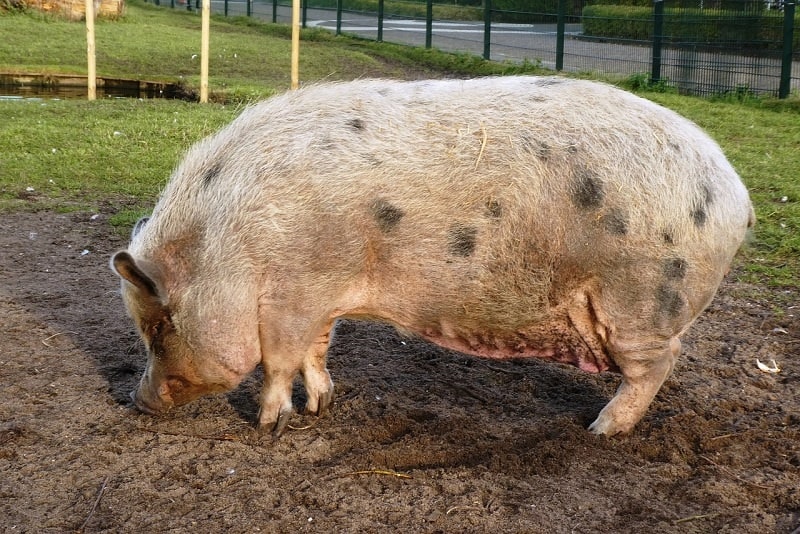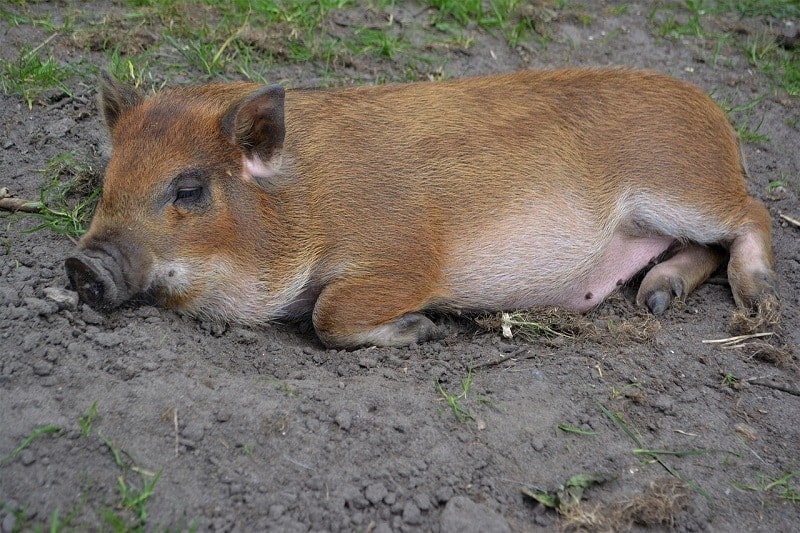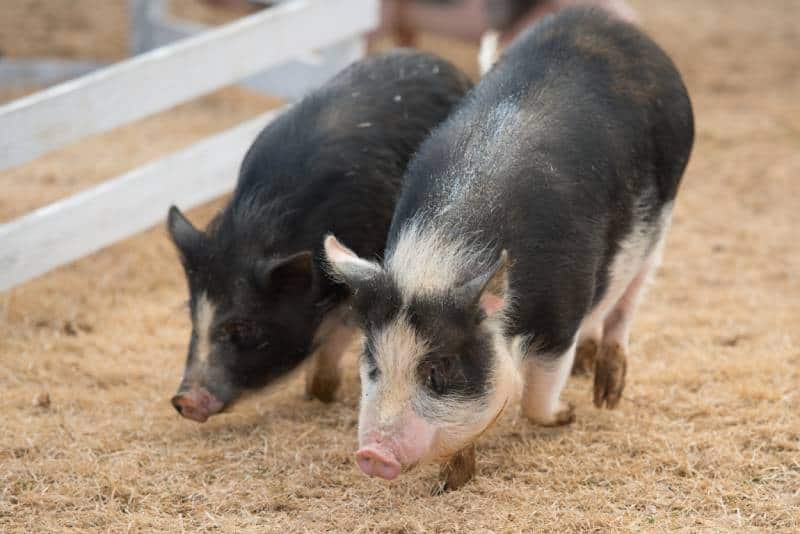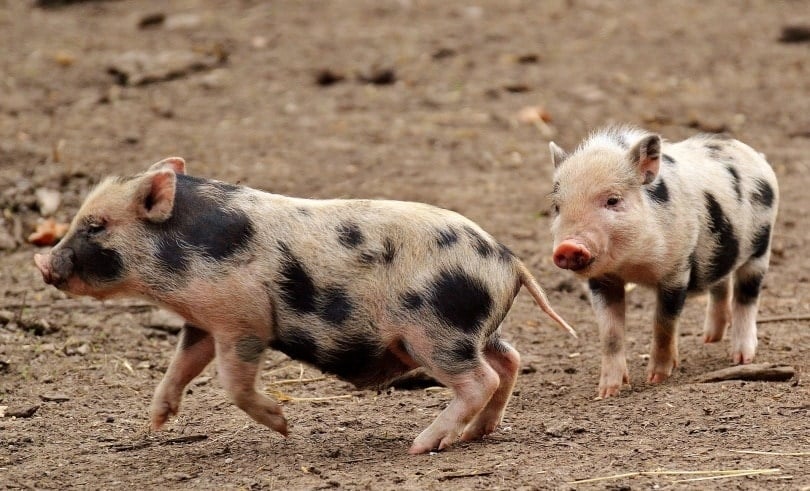People often think of livestock as unintelligent animals. It’s essential to view this question from an unbiased, unemotional point of view to get to the truth. As you may expect, it’s a loaded question filled with political, emotional, and ideological considerations. Part of the reason is the animal’s other role in medicine. They are a source of living tissue for humans, potential organ transplants, and insulin.
The similarities suggest that pigs may be intelligent, too, based on their compatibility with our bodies from a medical point of view. There’s evidence to support this hypothesis with the large percentage of our DNA that we share with our dogs and cats. Science recognizes their intelligence. Is it reasonable to think that pigs are smart? Yes, pigs were proven to be intelligent. Read on for more details.

Getting Intelligence Right

This question has nuances to it because the pig is livestock, too. That pushes it into the ethical realm. However, we still must position ourselves to answer it from an unbiased point of view that doesn’t put pigs and humans on the same level, despite the former’s role in the medical field. We must consider the elements of intelligence, including tool use, problem-solving, and social intelligence.
It’s helpful to use some of the criteria we gauge our pets’ intelligence with pigs. After all, they don’t have a beak that parrots use or opposable thumbs or zygodactyl feet like birds have with two toes in front and back. That arrangement allows them to pick up objects. Pigs have cloven hooves as even-toed ungulates. Therefore, we have to adjust our expectations on this score.
That means we must look toward how humans and pigs communicate and what the latter understands. They are social animals, which opens the door for cooperative behavior. Humans domesticated them about 9,000 years ago, which also provides another pathway toward a relationship with people.
That bond can offer the fodder for pigs to learn and evolve. A reliable food source allows these animals to thrive. Evolution will favor this relationship over one where scavenging for something to eat is the norm. It also supports brain development which can lead to a more intelligent creature. Remember that even though they can’t use tools, pigs are excellent problem-solvers.
Evidence for Pig Intelligence

Research has shown that pigs possess emotional intelligence. They perform similarly to dogs in testing behavioral responses to rewards. They can successfully make associations between stimuli and outcomes. Pigs seem to enjoy exploring their worlds with a curiosity that pushes them into the intelligent realm. You also have to remember that some species are pets.
Evidence of social intelligence also exists between pigs, humans, and other animals. They understand their worlds and the roles all play in it. They are social creatures, which opens the door for cooperative behaviors. Pigs communicate with each other, which also supports this assertion.
As it turns out, humans and pigs shared a common ancestor 80 million years ago. While that seems like a long time ago, the effects are far-reaching. Today, the result is humans and pigs is 98 percent common DNA, which explains the latter’s use in the medical field. Bear in mind that we also share 84 percent with dogs and 90 percent with cats.
That provides the fodder for further support of the intelligence of pigs. Some of that genetic material includes brain function, hence, the emotional intelligence we’ve discussed. Remember that DNA is the cookbook, and the genes are the ingredients. While you’ll see some more often in some species, the concept of tomato or human genes isn’t an accurate one.
Ethical Questions

One of the common misconceptions about animal intelligence is that it means livestock suffers more because of their fate. It’s actually a case for not exploring these questions. We must remember that we are omnivores, meaning we eat animal and plant-based proteins. Pigs are on that list for better or worse—from the pig’s perspective.
Intelligence has nothing to do with it. You can’t also draw conclusions merely based on our emotional relationship with different animals. It’s also vital not to make pigs, cows, or other animals little humans. They are not. The question of intelligence throws a huge wrench into the matter because they are livestock. Pigs and cows are not pets in the traditional sense.
Pigs are intelligent because of their evolutionary history. It has benefitted the animals from multiple perspectives. Remember that the domesticated variety is a product of wild animals that still hold onto these adaptive traits. We can say the same thing about dogs and cats. The difference is that the latter sometimes share our beds, whereas pigs are relegated to the barn.
Final Thoughts
Pigs are fascinating because of the unique role they play in human health. Dogs and cats can provide emotional support during tough times. Pigs can offer medical solutions, which puts them on a different plane than our pets. It also makes us question their intelligence and how we treat them. They are smart animals. However, we must put the answer in the context of society.
You may also be interested in:
- Dogs or Pigs: Which Are Used for Finding Truffles Nowadays?
- Truffle Hunting Pigs: Everything to Know About Truffle Hogs
Featured Image Credit: Alexas_Fotos, Pixaby
